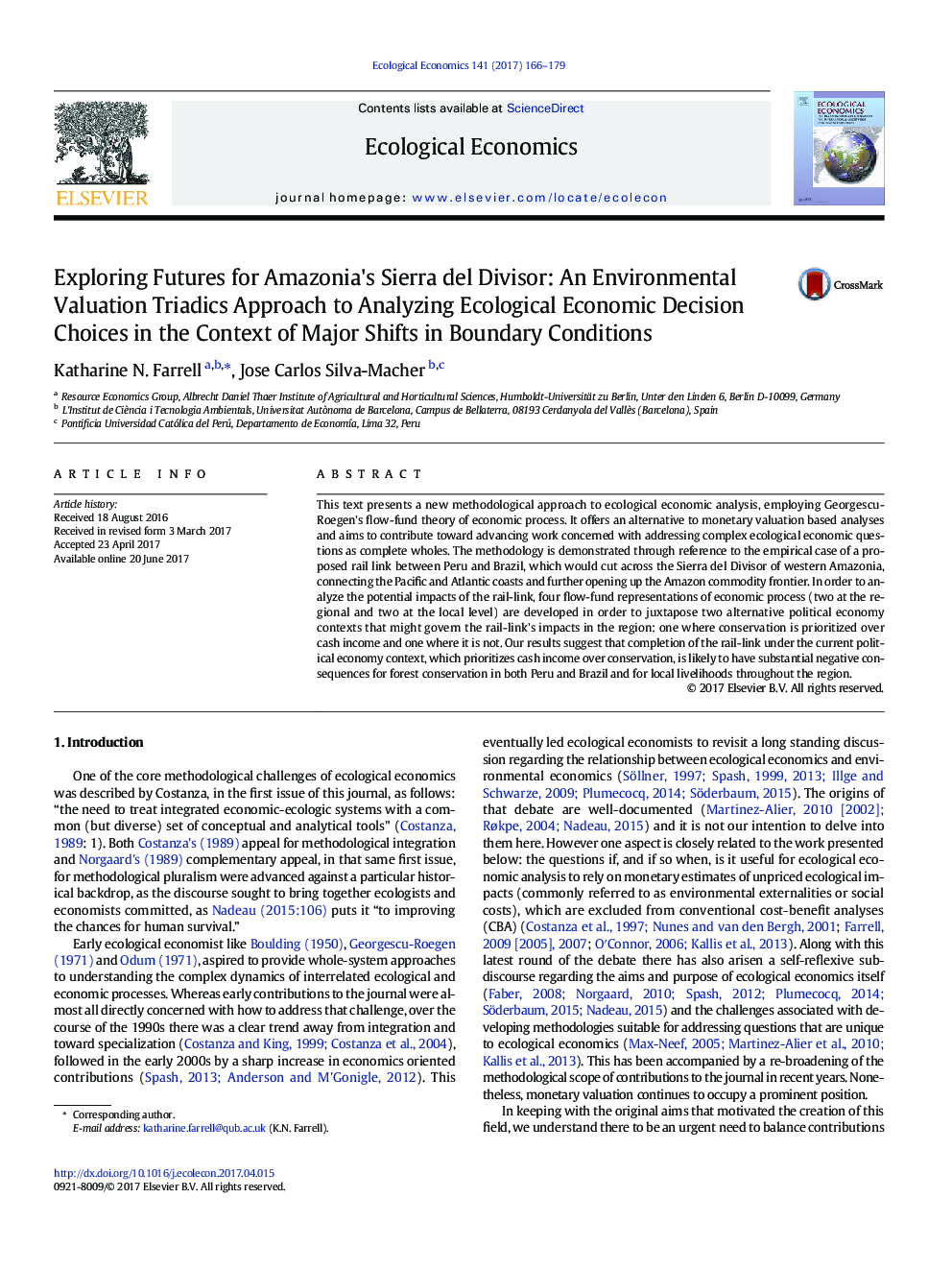| Article ID | Journal | Published Year | Pages | File Type |
|---|---|---|---|---|
| 5048666 | Ecological Economics | 2017 | 14 Pages |
This text presents a new methodological approach to ecological economic analysis, employing Georgescu-Roegen's flow-fund theory of economic process. It offers an alternative to monetary valuation based analyses and aims to contribute toward advancing work concerned with addressing complex ecological economic questions as complete wholes. The methodology is demonstrated through reference to the empirical case of a proposed rail link between Peru and Brazil, which would cut across the Sierra del Divisor of western Amazonia, connecting the Pacific and Atlantic coasts and further opening up the Amazon commodity frontier. In order to analyze the potential impacts of the rail-link, four flow-fund representations of economic process (two at the regional and two at the local level) are developed in order to juxtapose two alternative political economy contexts that might govern the rail-link's impacts in the region: one where conservation is prioritized over cash income and one where it is not. Our results suggest that completion of the rail-link under the current political economy context, which prioritizes cash income over conservation, is likely to have substantial negative consequences for forest conservation in both Peru and Brazil and for local livelihoods throughout the region.
